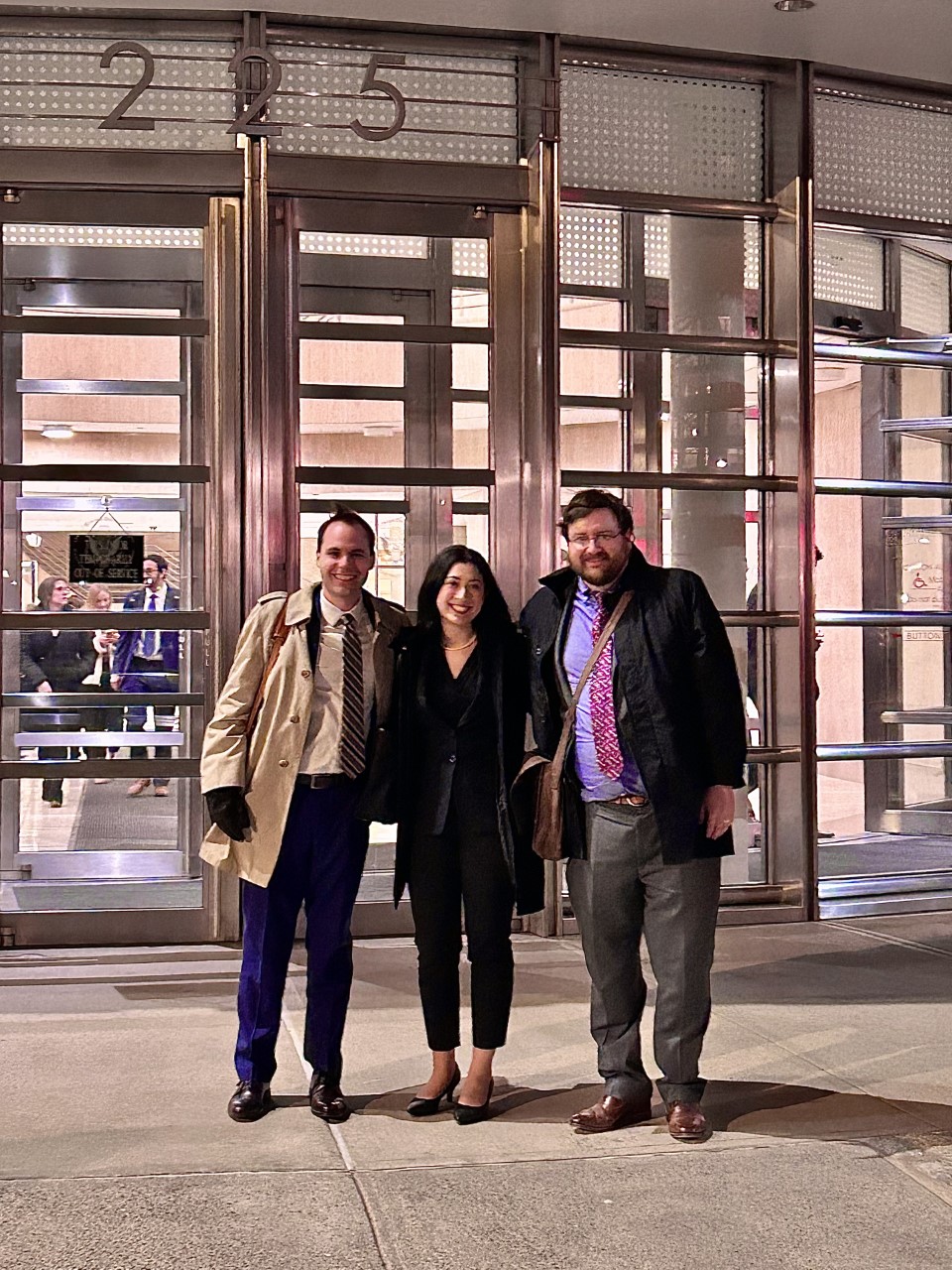Wayne Law Students Declared Regional Winners of the Brooklyn Regional ABA National Moot Court
A Wayne State University Law School moot court team qualified for the national final rounds of the ABA’s National Appellate Advocacy Competition to be held in Washington D.C. in April. The team of third-year students Amanda Navarre, Calder Burgam, and Brian Sarnacki [primary brief writer] were one of four schools declared winners of the Brooklyn Regional held February 16-18th.

The team also won the 2nd place brief award, Amanda Navarre won the 2nd place oralist award, and Calder Burgam won the 4th place oralist award. The team was undefeated in the regional, beating teams from Ohio State University Law School, University of North Carolina Law School, University of Colorado Law School, and Seton Hall Law School. The Brooklyn regional had a total of 32 teams competing.
This year a total of 173 teams from 100 ABA-approved law schools across the country will compete in six regionals, with the four winners of each regional advancing to the final rounds in Washington D.C.
As one of the most prestigious moot court competitions in the county, the ABA’s National Appellate Advocacy Competition emphasizes the development of oral and written advocacy skills through a realistic appellate advocacy experience. The hypothetical appeal to the U.S. Supreme Court this year involves two issues: whether there is a First Amendment academic speech exception to the rule in Garcetti v Ceballos for the in-class speech of a college instructor and whether a college may compel an instructor to communicate a message endorsing a viewpoint that conflicts with his academic views.
"As soon as we finished writing our brief, we began practicing three days a week. We're lucky to have great coaches in Amy Neville and Monica Batsford. We also benefited from the feedback of local practitioners, Wayne Moot Court alumni, and Wayne Law faculty who were incredibly generous in giving their time and sharing their expertise as guest judges. After facing questioning from folks like Professor Weinberg, we were ready for anything," said Burgam--a third-year law student.
The experience enlightened him and he has advice for his fellow students, "If you are looking for a law school experience that will help you become a well-rounded lawyer, it's tough to beat Moot Court. The strongest Moot Court competitors are strong writers and exceptional oralists. They are deeply prepared while remaining flexible and quick on their feet. They can explain complex details of a case without losing sight of the big picture. This competition has been a great opportunity to hone those legal skills at the highest level."
The students will travel to Washington, D.C. in April to compete in the national competition.